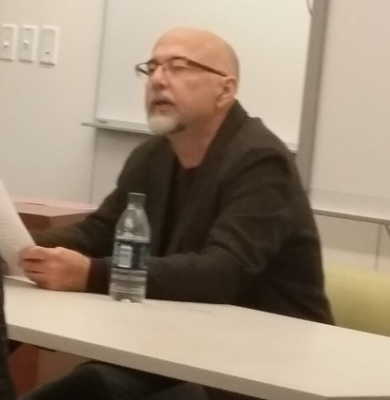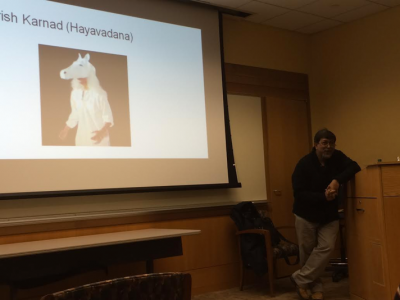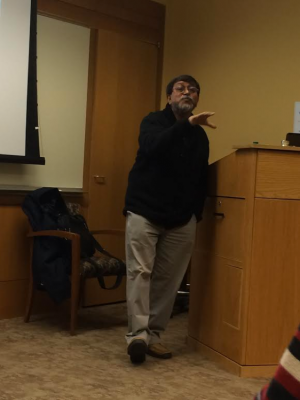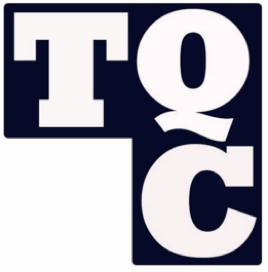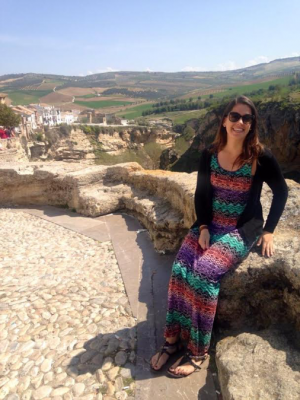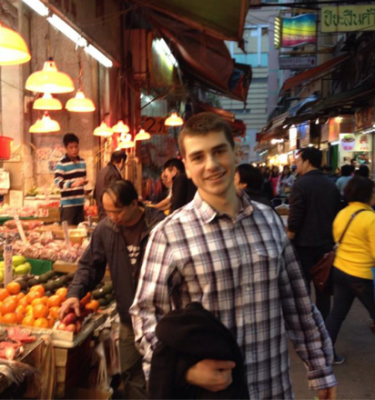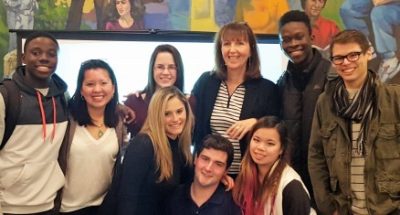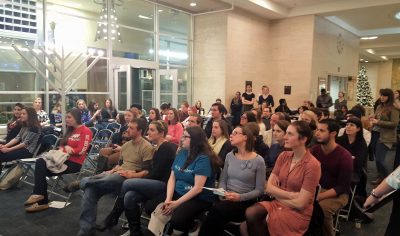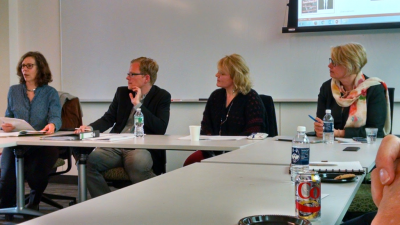
On March 23rd, LCL was pleased to host a panel on Intercultural Literature Citizenship and Public Discourse, including presentations by Professor Stefan Hermes of the University of Freiburg, Germany; Professor Eleni Coundouriotis of UConn’s English Department; and Professors Manuela Wagner and Anke Finger of LCL’s German section.
After some introductory comments by Professor Finger, Professor Hermes spoke about the recognition of blackness and race in German public discourse, presenting three examples from (popular) German media, including a black facing incident, a debate on the n-word and censorship in children books, and the media coverage of the mass sexual assaults which may have led to a shift in public opinion regarding both incoming refugees and certain “problematic cultural differences.” He stated that the majority of the German population considers Germany to be a “white” country, being that “white” is the norm, and that as white people tend to argue that, since they are not racists, their actions cannot be categorized as racist.
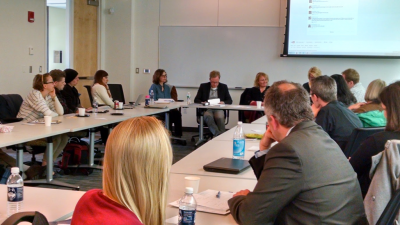 Professor Coundouriotis then spoke from a literature and human rights perspective, focusing on the term “realism,” and the different qualities of testimony and witnessing and the implications of visual media. The message appeared to be that people demand authenticity and realist descriptions, for this is what they understand to be the truth. There is no truth, Coundouriotis declared, but however the “truth” is what results most persuasive. She explained that literature fictionalizes and individualizes, thus giving mediated access to events. While testimony does constitute first-hand reportage, it often may be influenced by trauma. Condouriotis said that giving witness is important as a secondary form of talking about what happened, and all the more so because it implies an interruption of the atrocities.
Professor Coundouriotis then spoke from a literature and human rights perspective, focusing on the term “realism,” and the different qualities of testimony and witnessing and the implications of visual media. The message appeared to be that people demand authenticity and realist descriptions, for this is what they understand to be the truth. There is no truth, Coundouriotis declared, but however the “truth” is what results most persuasive. She explained that literature fictionalizes and individualizes, thus giving mediated access to events. While testimony does constitute first-hand reportage, it often may be influenced by trauma. Condouriotis said that giving witness is important as a secondary form of talking about what happened, and all the more so because it implies an interruption of the atrocities.
Professor Wagner later talked about the concept of intercultural citizenship as the key goal in coping with globalization. She pointed to the recent terror attacks in Brussels as yet another sad example of how important critical cultural awareness and intercultural competences are in an evermore pluralistic world. Wagner further commented on the topic of intercultural citizenship from the teaching perspective, presenting projects from the foreign language classroom, as well as international, and interdisciplinary projects.
Finally, Professor Finger shared a video clip in which people of Indian extraction spoke about the representation of Indian people in popular culture in the United States. Drawing attention to the vast quantity of comments that the video had garnered on YouTube, Finger emphasized the importance of including digital media in public discourse on pressing topics. She argued that people in today’s world are no longer mere consumers of media, but are rather active contributors and participants of public debates taking place via social media.
The discussion that followed the panelist’s four presentations included some pointed concerns on strategies for disrupting mainstream discourse surrounding topics of interculturality and global citizenship, and possibilities for including marginalized voices and opinions in public debates. Questions were also raised on the topic of radical and offensive opinions, such as if and how these are to be dealt with, and what would be the repercussions of policing public discourse by silencing “unpleasant” voices or seeking to teach “correct” attitudes for the sake of public engagement.
Special thanks to Maria Reger for making this piece possible.


